Climate change and the UK
Climate change is a global issue that is threatening hundreds of millions of people’s lives and the nature around the world. But how is the UK contributing to the climate crisis, how is it affecting the UK, and what should the UK do?

An overview of the UK's contribution to climate change
The UK is one of the countries most responsible for climate change. This is because it has emitted so much greenhouse gas since the start of the Industrial Revolution, and these historical emissions are still accumulated in the atmosphere today, contributing to the climate crisis. Furthermore, while the UK has been reducing its emissions within its border in the last few decades, a very significant proportion of emissions from the UK is generated elsewhere in the world to supply the UK’s imports and through international flights. The UK’s responsibility further increases when we consider emissions per person[1] instead of the total emissions by a country.
Here are the key contributions broken down:
-
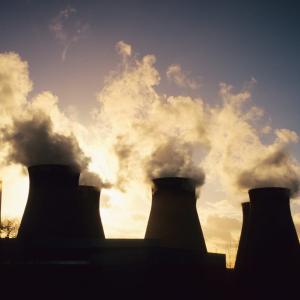 © Edward Parker / WWF
© Edward Parker / WWFMore Close Energy
Burning fossil fuels for energy is one of the biggest sources of greenhouse gas emissions in the UK
-
 © Sam Hobson
© Sam HobsonMore Close Agriculture & food
The UK's production and consumption of food and other products are emitting a large amount of greenhouse gases. They are also causing nature destruction both domestically and abroad.
-
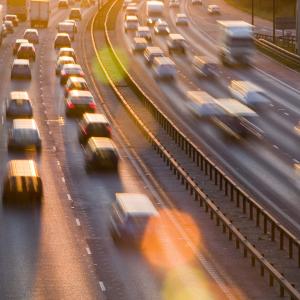 © Global Warming Images / WWF
© Global Warming Images / WWFMore Close Transport
Currently the largest source of UK greenhouse gas emissions, transport accounts for about one-fourth of the total. Unless electric and charged with renewable energy, all vehicles produce emissions by burning fossil fuels. Aviation and international shipping are particularly significant sources.
-
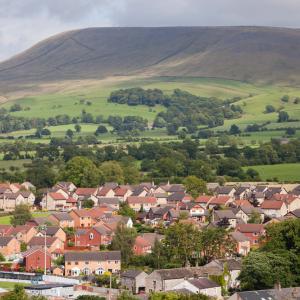 © Global Warming Images / WWF
© Global Warming Images / WWFMore Close Buildings
Homes account for around 20% of UK’s greenhouse gas emissions, yet progress in reducing these emissions has been slow. Currently, most homes are heated by gas and are below Energy Performance Certificate (EPC) rating C, meaning that they are energy inefficient.
-
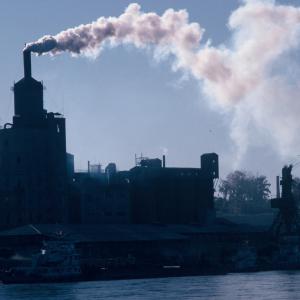 © WWF-Canon / Hartmut JUNGIUS
© WWF-Canon / Hartmut JUNGIUSMore Close Industry
Industrial processes, such as the production of cement, steel, or fertilisers, burn fossil fuels and release large amounts of greenhouse gases as by-products.
-
 © Shutterstock / Denis Vrublevski / WWF
© Shutterstock / Denis Vrublevski / WWFMore Close Finance
The UK financial sector is one of the biggest sources of greenhouse gas emissions. Emissions associated with UK Financial Institutions are estimated to be almost twice the UK's domestically produced emissions.[2] If considered as a country, UK Financial Institutions would have the 9th largest emissions globally.
/
Find out more about climate change on a global scale, the causes, impacts and solutions.
-
 © AlbertPego
© AlbertPego -
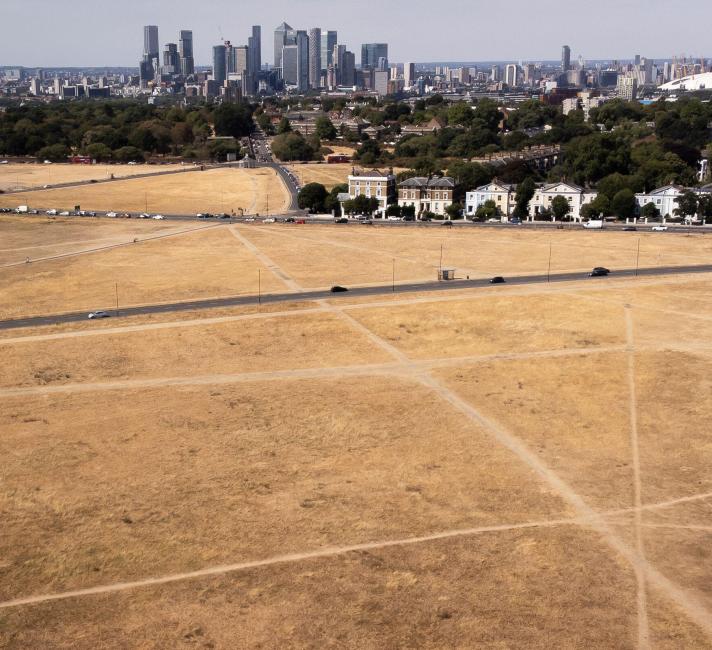 © PA Images / Alamy Stock Photo
© PA Images / Alamy Stock Photo -
 © PA Images / Alamy Stock Photo
© PA Images / Alamy Stock Photo -
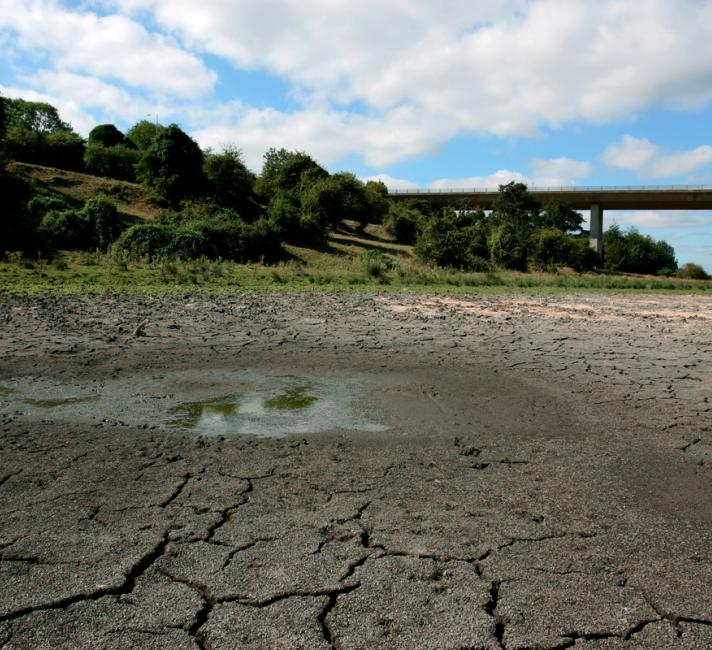 © Jiri Rezac WWF-UK
© Jiri Rezac WWF-UK -
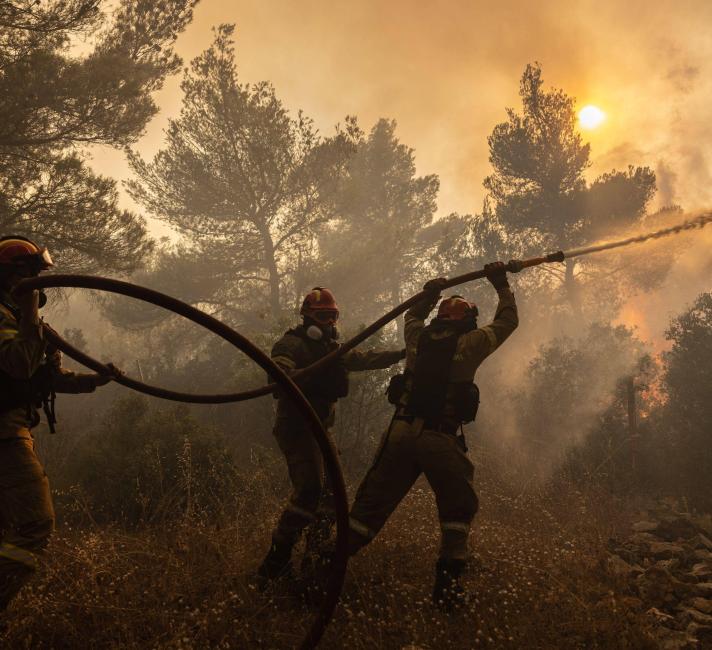 © Lefteris Partsalis / Xinhua / Alamy Liv News
© Lefteris Partsalis / Xinhua / Alamy Liv News -
 © Eilis Garvey / Unsplash
© Eilis Garvey / Unsplash
Impacts of climate change on people in the UK
-
Cost of living
The cost-of-living crisis and climate crisis are two sides of the same coin. The reliance on fossil fuels, especially gas with a highly volatile price, has resulted in record increases in the UK’s energy bills in recent years. Simultaneously, food prices have risen as climate change-induced floods and droughts affect crops.
-
Heatwaves
Heatwaves are also increasing in frequency due to climate change, with research showing that climate change makes heatwaves 10 times more likely in the UK. Besides causing discomfort, heatwaves pose serious health risks, particularly for people with heart and lung conditions. There are also more deaths recorded in the UK during heatwaves. All these are putting a strain on our health and emergency services. Heatwaves can also increase demand on water and energy.[4]
-
Floods
The UK now faces record-breaking flooding, with more floods in the past 30 years than the last 500 years.
Flooding can devastate homes and businesses, and disrupt work and education. Vital flood defences in England already cost over £1 billion per year, a figure likely to increase as the climate crisis worsens.[3]
-
Droughts
Droughts are becoming more common in the UK as the climate crisis accelerates. This can lead to water supply shortages, impacting agriculture and food production while increasing the risk of wildfires.
-
Wildfires
While not traditionally a UK concern, wildfires have become more frequent in recent years, putting households and businesses at risk. Their impacts can be devastating, causing injury to people and animals, worsening air quality, damaging ecosystems, agriculture, and infrastructure, and pressuring emergency services.
-
Sea level rises
Sea level rise is particularly concerning for coastal communities, where homes, land and infrastructure along the coastline are vulnerable to coastal erosion. This not only causes emotional distress but also has social and economic impacts on local areas, including property damage and loss of livelihoods in tourism or agriculture. It is estimated that in England alone, nearly 200,000 properties will be at risk of abandonment from the 2050s due to rising sea levels. These coastal regions also face heightened flood risks and natural habitats are at greater risk of submersion or displacement.[5]
Impacts of climate change on UK Wildlife
-
 © Megan Lorenz / Natural Habitat Adventures
© Megan Lorenz / Natural Habitat AdventuresPuffins
The UK puffin population is predicted to nosedive by up to 90% in the next 30 years, as the species faces threats to both their nesting sites and their food supply; climate change is only making things worse. Overfishing is severely reducing their food sources and the fish populations they rely on are moving as the oceans warm. The combinations of these impacts could be devastating for UK puffin populations.
-
 © naturepl.com / Alex Mustard / WWF
© naturepl.com / Alex Mustard / WWFBasking sharks
The largest fish roaming our waters: the elusive basking shark. These gentle giants gather on our western coastlines to feed and breed in our plankton-rich seas. However, as our climate continues to change, the pattern of ocean currents and plankton distribution could change, meaning that basking sharks will no longer be able to get the food they need in the UK’s seas.
-
 © iStock.com / Imago Dens
© iStock.com / Imago DensBees
Many of us have heard about honeybees and bumblebees, but did you know that the UK is home to over 270 different species of bees? Each one plays a special role in keeping our meadows, woodlands, heathlands, farmlands and hedgerows alive. Our grasslands and pockets of vibrant wildflower meadows across the country help keep our bee populations afloat. Bees pollinate the plants around us, so without them many food chains would struggle to survive. We need to act now to limit the rise in global temperatures, otherwise climate change could be the final straw for some bee species.
-
 © Global Warming Images / WWF
© Global Warming Images / WWFOaks
Our natural tree species, such as oak, have adapted to a changing climate over hundreds of years. But now the climate is changing beyond its normal limits and our ancient oaks cannot adapt fast enough. They are under pressure like never before, from extreme climate events that bring droughts or flooding, and from new pests and diseases.
/
Discover more UK species affected by climate change.
-
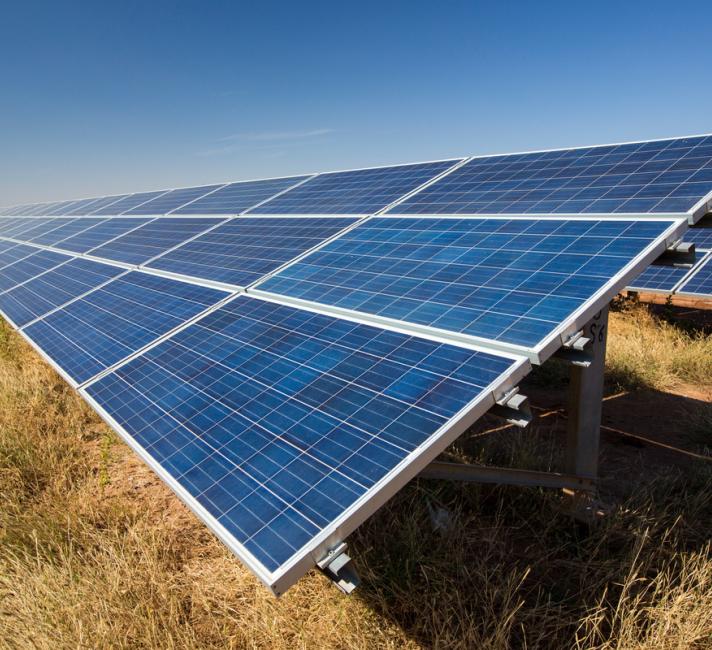
-
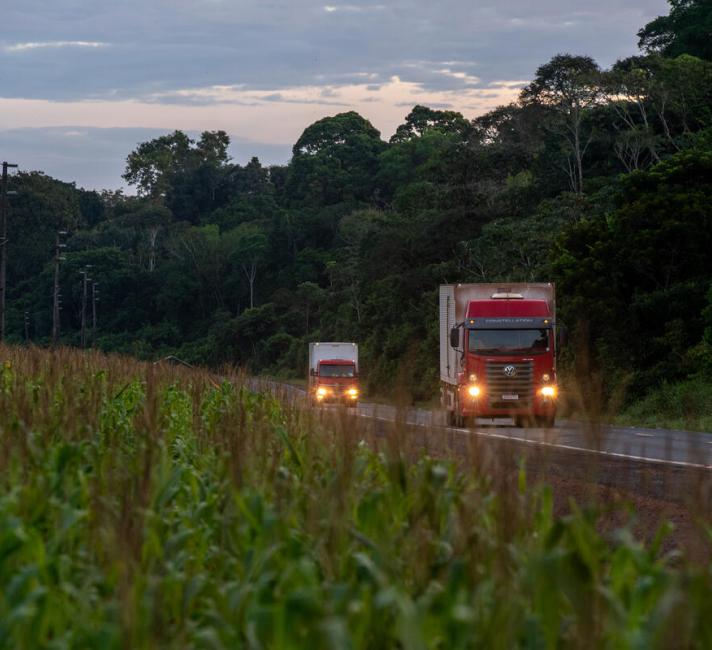 © Chris J Ratcliffe / WWF-UK
© Chris J Ratcliffe / WWF-UK -
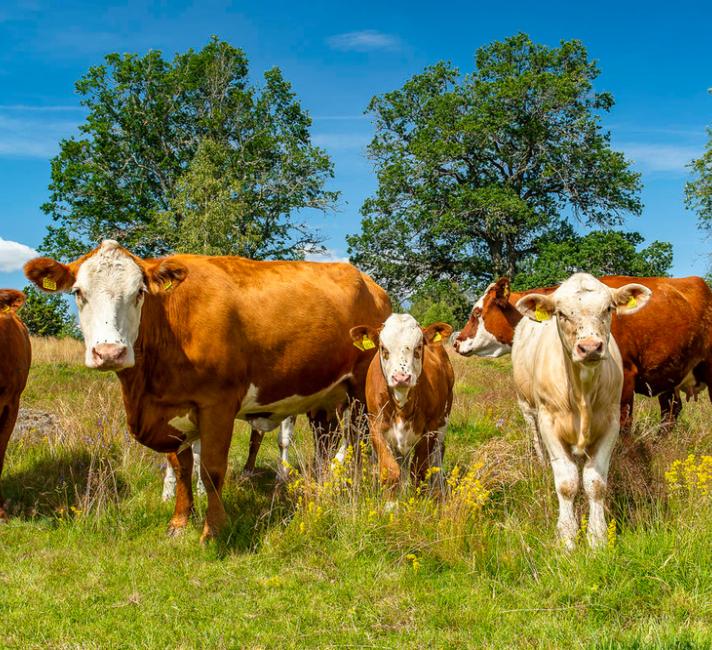 © Ola Jennersten / WWF-Sweden
© Ola Jennersten / WWF-Sweden -
 © Rick / Flickr
© Rick / Flickr -
 © David Bebber / WWF-UK
© David Bebber / WWF-UK -
 © Maksim Safaniuk / Shutterstock
© Maksim Safaniuk / Shutterstock
UK Solutions to climate change
-
More renewable energy and less fossil fuels
Transitioning from fossil fuels to cleaner, cheaper renewable energy is fundamental to achieving net zero. We need to see a massive scale-up of renewable energy like wind and solar power. The UK also needs to phase out its reliance on domestic and overseas fossil fuels, including North Sea oil and gas drilling - increasing fossil fuel production in the North Sea has been proven to have a minimal impact on addressing the energy security crisis (you can read more here). Developing better energy storage solutions is also crucial to ensure reliable supply when the wind is not blowing, or the sun is not shining.
-
Zero emissions in several sectors
The power, transport and building sectors must reach zero, or near-zero, greenhouse gas emissions by 2050. This requires switching to electric vehicles, increasing public transport usage and minimising air travel, which reduce emissions from the transport sector while reducing air pollution. It also means that we need to invest in improving the energy efficiency of our buildings, such as insulating walls and roofs, and installing heat pumps. This also has the added benefit of reducing our energy bills, higher property values, and better physical and mental health.
-
Deep cuts in ‘hard to decarbonise’ sectors
Industry, shipping and agriculture must significantly reduce their greenhouse gas emissions. Aviation must not increase emissions beyond current levels, which will likely require close to zero emissions from domestic flights. Collaboration with farmers is needed to implement sustainable agricultural practices and reduce their carbon footprint through improving soil health, optimising land use, restoring nature on farmlands and reducing methane emissions.
-
International collaboration
With its diplomatic power, the UK plays an important role in facilitating international climate negotiations. Countries need to work together to address the climate crisis, combining efforts to keep warming within the globally agreed limit of 1.5°C increase. International collaboration is crucial for accelerating innovation in technological solutions and reducing emissions from international aviation and shipping. The UK finance sector’s footprint is key too – the government needs to deliver on its ambition to become the world’s first net zero-aligned financial centre, through aligning UK’s financial flows with the Paris Agreement.
-
Behaviour change
Business and governments must support individuals in making more sustainable choices, such as adopting more plant-based diets and flying less. It is also important to raise public awareness about the impacts of the climate crisis and the importance of reaching net zero, as well as helping people to lead sustainable lives.
-
Transition to a circular economy
The circular economy is a system where consumed materials are reused to produce other goods, such that they do not end up becoming waste. This means buying less of what we don’t need, buying second hand, using products made from reused materials, and reusing and recycling more.
How WWF-UK is helping
WWF-UK are at the forefront of driving changes in policy and legislation, to reduce the UK’s greenhouse gas emissions and ensure that the UK Government is held to account.
Our focus is on the following main areas: climate and energy, agriculture and land use, diets and consumption, and finance.
Find out more about this work below:
-
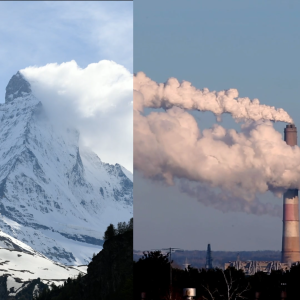 © WWF-UK
© WWF-UKMore Close Our work on climate and energy
WWF-UK have created a Net Zero Delivery Tracker tool, which enables government to understand the impact of its tax and spending choices on the climate and environment, and are advocating for its adoption. Adopting the tool would help ensure that every pound spent helps lay the foundations of a 21st century economy that scales up cheap, clean, British energy, makes households richer and warmer and ensures the UK is a leader in the industries of the future.
We are also championing low carbon energy solutions at homes and jointly calling for ambitious climate action on home decarbonisation from the UK Government and local authorities across the nations of the UK. Find out more about the work with Scottish Power.
Private investment is also crucial to ensuring the transition happens at the required speed and scale. That’s why, alongside a range of businesses and civil society organisations, we’re calling for Government to introduce a Net Zero Investment Plan to crowd in private investment, giving businesses the policy certainty needed to invest in the UK. That would involve tracking whether enough investment is flowing to help each sector of the economy reach net zero and creating a plan to get it flowing faster in each sector.
Discover the investment plan -
 © Richard Stonehouse
© Richard StonehouseMore Close Our work on diets and consumption
Reducing the impact of our food system requires a change in the way we produce and consume foods. This is no easy feat in a food system which drives us towards less healthy and often unsustainable foods and incentivises forms of farming that harm rather than help nature. WWF-UK’s food work ranges from the heart of the Amazon to the wheatfields of Norfolk, acting as a solutions and actions-focussed voice in the debate about the future of food in this country.
We work to shift the food system towards one where the public is empowered and enabled to choose the best foods for their health and for the planet, and where farmers are properly rewarded for farming with nature, reducing emissions and capturing carbon. We work closely with food businesses to improve their offering, and work within policy development to support transitions from farm to fork to make healthy and sustainable foods more widely available and affordable.
WWF Basket -
 © Shutterstock / Leung Cho Pan / WWF
© Shutterstock / Leung Cho Pan / WWFMore Close Our work on finance
We actively engage with governments, international organisations, civil society and the finance sector to advocate for sustainable finance policy reform and develop the tools and standards to safeguard a sustainable environment.
We work closely with banks, pension funds, asset managers, asset consultants and insurers, as well as thought leaders and other non-profits, on driving more sustainable investments that serve people and the planet.
This is because we see finance as a key lever to influence sustainable outcomes – for instance, through ensuring that financial institutions reduce their impact on the natural world by taking environmental considerations into account in lending and investment decisions, and providing innovative financial mechanisms which protect and encourage sustainable ecosystems.
/
Sources
[1] Energy & Climate Intelligence Unit, Why the UK's 1% of global emissions is a big deal. Available at: https://eciu.net/insights/2021/why-the-uks-1-of-global-emissions-is-a-big-deal
[2] Greenpeace, The Big Smoke. Available at: https://www.greenpeace.org.uk/wp-content/uploads/2021/05/The-Big-Smoke-the-global-emissions-of-the-UK-financial-sector.pdf
[3] Office for national statistics, Investment in flood defences, UK: May 2023. Available at: https://www.ons.gov.uk/economy/economicoutputandproductivity/output/articles/investmentinflooddefencesuk/may2023
[4] World weather attribution. Without human-caused climate change temperatures of 40°C in the UK would have been extremely unlikely. Available at:https://www.worldweatherattribution.org/without-human-caused-climate-change-temperatures-of-40c-in-the-uk-would-have-been-extremely-unlikely/
[5] Tyndall Centre for climate change research. 150,000 – 200,000 homes and businesses in England at risk of sea level rise from the 2050s. Available at: https://tyndall.ac.uk/news/150000-200000-homes-and-businesses-in-england-at-risk-of-sea-level-rise-from-the-2050s/


